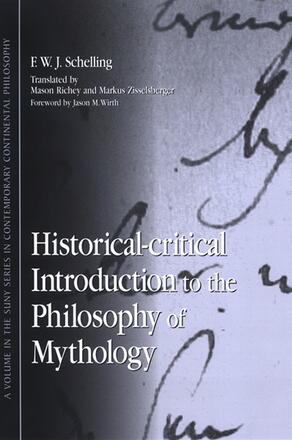
Historical-critical Introduction to the Philosophy of Mythology
Alternative formats available from:
Appearing in English for the first time, Schelling’s 1842 lectures develop the idea that many philosophical concepts are born of religious-mythological notions.
Description
Translated here into English for the first time, F. W. J. Schelling's 1842 lectures on the Philosophy of Mythology are an early example of interdisciplinary thinking. In seeking to show the development of the concept of the divine Godhead in and through various mythological systems (particularly of ancient Greece, Egypt, and the Near East), Schelling develops the idea that many philosophical concepts are born of religious-mythological notions. In so doing, he brings together the essential relatedness of the development of philosophical systems, human language, history, ancient art forms, and religious thought. Along the way, he engages in analyses of modern philosophical views about the origins of philosophy's conceptual abstractions, as well as literary and philological analyses of ancient literature and poetry.
Mason Riche teaches philosophy and is a professional translator. Markus Zisselsberger is Assistant Professor of Modern Languages and Literatures at the University of Miami and is the coeditor (with Gisela Brinker-Gabler) of "If We Had the Word. ": Ingeborg Bachmann. Views and Reviews.
Reviews
"Highly recommended. " — CHOICE
"F. W. J. Schelling remains a uniquely passionate, daring, and untimely philosopher. Now, more than 150 years after these lectures were given in Berlin, his time has come. This material is always intriguing and often thrilling. Schelling's fertile imagination and prodigious learning are on full display here. Not only will those seeking a thought-provoking philosophy of mythology find this book rewarding, but also readers with interest in the philosophy of history, the philosophy of language, and the philosophy of religion will be quickened by Schelling's forays in these areas. The translators, who have also provided copious notes and a glossary, have provided a genuine service. " — Bernard Freydberg, author of Imagination in Kant's Critique of Practical Reason